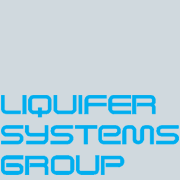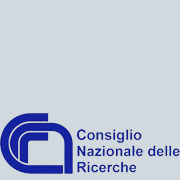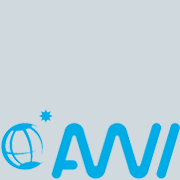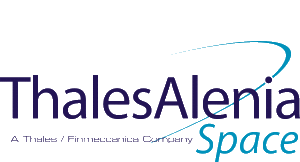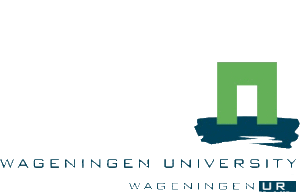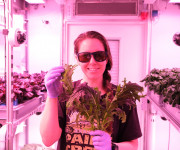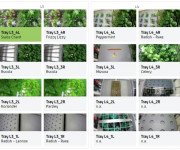- DLR German Aerospace Center, Germany
- LIQUIFER Systems Group, Austria
- National Research Council, Italy
- University of Guelph, Canada
- Alfred Wegener Institute for Polar and Marine Research, Germany
- Enginsoft S.p.A., Italy
- Airbus Defence and Space, Germany
- Thales Alenia Space Italia S.p.A., Italy
- Arescosmo S.p.A., Italy
- Wageningen University and Research, the Netherlands
- Heliospectra AB, Sweden
- Limerick Institute of Technology , Ireland
- Telespazio S.p.A., Italy
- University of Florida, USA
- Scientific Advisory Board (SAB)
German Aerospace Center (DLR), Germany
Institute of Space Systems (DLR-RY) Germany
Location: Bremen, Germany
Website: www.dlr.de
Participant profile: Institute of Space Systems (DLR-RY) DLR-RY aims to investigate and evaluate complex astronautic systems in the context of space research with consideration of technological, economical as well as socio-political aspects. DLR-RY has competency in both Concurrent and Systems Engineering and uses them in combination in order to deeply investigate controlled environmental agriculture (CEA) technologies, their implementation in extra-terrestrial greenhouses and closed-loop habitation. DLR will provide the Space Habitation Plant Laboratory (EDEN Lab.) consisting of work areas, an analysis room and an experiment area where the experiments will be carried out prior to the module being transported to Antarctica.
Main tasks in the project: Institute of Space Systems (DLR-RY) DLR is Project Coordinator and will head the Project Management of EDEN ISS. The key tasks led by DLR’s Institute of Space Systems; are the planning and execution of the facility design study and overall structure of the Future Exploration Greenhouse. DLR-RY will take the lead on developing the power control and distribution unit of the facility.
The (final) greenhouse developed by the consortium as well as the operation procedures, food quality and safety will undergo system demonstration and validation conducted by DLR. DLR-RY will also provide several Concurrent Engineering (CE) studies to design the EDEN ISS facility and to define the parameters for greenhouse module adaption and evolution for its future deployment on Moon or Mars.
Institute of Aerospace Medicine (DLR-ME), Germany
Location: Cologne, Germany
Website: www.dlr.de
Participant profile: Institute of Aerospace Medicine (DLR-ME) DLR-ME deals specifically with life science problems concerning space flight, exploration, aviation and traffic. Research activities of DLR-ME are focused on medical, biological and physical research, e.g. development of countermeasures to protect humans from the effects of weightlessness, research under microgravity conditions and space microbiological aspects such as adaptation of life to extreme environments. From a microbiological point of view: projects focus on researching the viability and adaptability of living things to extreme environmental conditions as they occur in space or on other planets like Mars.
Main tasks in the project: Institute of Aerospace Medicine (DLR-ME) DLR-ME will contribute their expert knowledge in microbiology and will prepare and supervise the microbial investigations during the test campaign in Antarctica, focusing largely on the properties of greenhouse cultivated food and its effect on crew members. DLR-ME will be participant in the design of the EDEN ISS facility.
LIQUIFER Systems Group, Austria
Location: Vienna, Austria
Website: www.liquifer.com
Participant profile: LIQUIFER Systems Group GmbH (LSG) is a multidisciplinary task force comprised of a wide range of experts from the fields of systems architecture and engineering, robotics, human factors and science. LSG’s project expertise focuses on space exploration prototypes, analogue simulation structures and scenarios and on Human Factors and Habitability. The composition of the company provides a unique environment for innovative research and product development.
Main tasks in the project: LSG will serve as coordinator of system analysis and design and will be responsible for its definition and interface; particularly the internal and external interfaces, ISS payload standards and functional requirements. LSG will participate in the design of the facility and will help in the study to evolve the greenhouse module design towards deployment on Moon or Mars. LSG will head the projects public engagement and will lead in the exploitation of the project results.
National Reasearch Council (CNR), Italy
Institute of Agro-environmental and Forest Biology (IBAF), Italy
Location: Porano / Monterotondo / Legnaro / Naples, Italy
Website: www.cnr.it
Participant profile: Institute of Agro-environmental and Forest Biology (IBAF) The general research fields of the institute are plant-environment interactions, control of plant physiology and biochemistry for food and biomass production (for the food market, for biorefinery and for phyto-remediation of polluted environments) and biological and evolutionary processes and mechanisms in plants in relation to their environment.
The research group involved in the project has specific experience on space related plant biology, on controlled environments plant growth and on the role of environmental control as a tool to control plant photosynthesis, transpiration, growth, productivity and quality of the produce. Major themes of research are related to the physiological biochemical and molecular regulation of photosynthesis and the carbohydrate and organic acid metabolism and source/sink relationships, as a function of environmental conditions.
Institute of Food Science (ISA), Italy
Location: Avellino, Italy
Website: www.isa.cnr.it
Participant profile: Institute of Food Science (ISA) ISA is involved in the research, enhancement and technological transfer about the composition and quality of food and its effect on human health. ISA is expert in the characterization and valorisation of foods typical to the Mediterranean diet; genomics, proteomics and bioinformatics as it applies to food science. The ISA research group has extensive experience in food biochemistry and microbiology, food safety and in the study of natural extracts used as antimicrobial products for health and agronomy. Through use of recent analytical approaches such as UPLC-DAD, the group is extensively involved in the qualitative and quantitative evaluation of secondary metabolites. Furthermore, microfluidics let them to obtain a fast, precise and sensitive micro-2D profile of vegetal, animal and microbial protein pattern. Microbial analysis as well as biochemical characterization of vegetal extracts allow for the identification of natural antimicrobial, antiquorum sensing and antimutagen agents from natural sources.
Main tasks in the project: The two institutes ISA and IBAF of the CNR are responsible for preparing and supervising food quality, safety and processing during the test campaign in Antarctica. Together, they will offer their expert knowledge with respect to food quality and safety as participant in the facility’s design and will contribute to the design of operation procedures. The IBAF “Food and Biomass quality laboratory” will be used for the characterization of the primary components of the food and biomass produced by the EDEN ISS project. The laboratory is equipped with an up to date ion chromatography system which will be used for the detection and quantification of a large number of key metabolites in food and biomass quality characterisation (carbohydrates, organic acids, sugar alcohols, amino acids and mineral ions).
University of Guelph, Canada
Controlled Environment Systems Research Facility (CESRF)
Location: Guelph, Canada
Website: www.uoguelph.ca
Participant profile: The CESRF at the University of Guelph, began as a Natural Sciences and Engineering Research Council Collaborative Research and Development funded project (NSERC-CRD) in collaboration with the aerospace and greenhouse sectors. It has since evolved into a research program that has state-of-the-art capacity in controlled environment studies and those related to biological life support for space exploration.
Main tasks in the project: The CESRF will be responsible for the integration of the nutrient delivery system of the EDEN ISS greenhouse facility and will contribute to the power control, command, and data handling subsystems. The CESRF will test system performance in Antarctica and will investigate its terrestrial applications. The CESRF designs, builds and operates some of the world’s largest high-resolution plant growth chambers, enabling very precise studies of plant responses to a range of environmental changes and impacts. The chambers are equipped with advanced in-situ sensors that monitor plant photosynthesis and respiration.
Alfred Wegener Institute for Polar and Marine Research (AWI), Germany
Location: Bremerhaven, Germany
Website: www.awi.de
Participant profile: The Alfred Wegener Institute for Polar and Marine Research (AWI) is one of the worlds’ leading polar research organizations and delivers significant contributions to the international research on climate, marine and coastal issues. AWI is the national manager and implementation agency of the National German Arctic and Antarctic Programme and has the national level mandated by the German Federal Government to conduct research in both polar regions, mainly in the area of multidisciplinary environmental research; to support other German researchers and institutions; to manage and coordinate all German polar research activities; to advise the German government in all matters concerning the polar regions.
Main tasks in the project: AWI will provide the necessary logistic infrastructure at the Neumayer III Station and the EDEN ISS team is supported by AWI’s technical personnel, in order to meet the requirements for the full performance of the Antarctic test campaign. Furthermore, AWI will provide advice on the technical aspects, cater for the accommodation for the project personnel during summer and winter seasons, offer continuous supervision for the safety of the project operations inside and outside the Station and will provide the backup for emergency evacuation.

Enginsoft S.p.A., Italy
Location: Trento, Italy
Website: www.enginsoft.com
Participant profile: EnginSoft is a consulting company specialized in scientific IT targeted at the optimization of design and production processes. Operating in the field of computer aided engineering (CAE), EnginSoft provides services in virtual prototyping, advanced simulation, process integration and design optimization (PIDO). Simulations include; mechanics, fluid-dynamics, fast dynamics and crash, metallurgy, process simulation, environmental engineering, off-shore engineering, acoustic analysis and more.
Main tasks in the project: EnginSoft will be responsible for the study of Thermal Fluid Dynamics of the facility and will provide detailed Computational Fluid Dynamics simulations of the environmental control. EnginSoft is a participant in the design of the facility and will contribute to the exploitation of project results.
Airbus Defence and Space, Germany
Location: Ottobrunn, Germany
Website: www.airbusdefenceandspace.com
Participant profile: Airbus Defence and Space is a large, international company, employing over 17,000 men and women with locations in France, Germany, the UK, Spain and Netherlands. Airbus is a committed leader in space transportation, satellite systems and services. With Airbus’s extensive portfolio and wide range of expertise, EDEN ISS will benefit from the company’s in-house studies prepared for the development of automated, alternative space greenhouse concepts, focusing on the analysis of biochemical parameters and the positive identification of biological contamination on surfaces and of air borne contamination.
Main tasks in the project: Airbus is responsible for the monitoring of plant health and will contribute to advancing the plant growth chamber design towards compatibility with the International Space Station (ISS). Airbus is participant in facility design and assistant in the overall system Assembly Integration and Test.
Thales Alenia Space Italia S.p.A. (TAS), Italy
Location: Torino, Italy
Website: www.thalesaleniaspace.com
Participant profile: TAS Italia has more than 40 years of experience in the design, integration, testing, operation and commissioning of innovative space systems. The satellites and payloads designed by TAS Italia set the global standard for space systems that provide communications and navigation services, monitor our environment and the oceans, help us better understand climate change and drive scientific progress. TAS is a leading supplier to the International Space Station; having supplied half of ISS’s pressurized volumes, including: Nodes 2 and 3, the Multipurpose Pressurized Logistics Modules (MPLM), the Cupola and the Pre-Integrated Columbus laboratory, as well as the Integrated Cargo Carriers (ICC) for the ATV spacecraft and the Cygnus Pressurized Cargo Module, that ferry supplies to the Space Station. The ISS Experimental Facilities for Columbus, Fluid Science Lab (FSL) and European Drawer Rack (EDR) are made by TAS Italia, now developing the advanced version of EDR Mark2.
Main tasks in the project: TAS Italia is responsible for the environmental control of EDEN ISS, specifically for the two ISPR plant cultivation systems, which they will provide. TAS Italia will coordinate the ISPR subsystem design and building; supporting design of the nutrient delivery system for the ISPR cultivation system. A rack system test will be conducted by TAS Italia as well as investigation into the environment control performance during the test campaign in Antarctica. TAS Italia will also oversee the advancement of the plant growth chamber design towards application on-board the ISS.
![]()
Arescosmo S.p.A., Italy
Location: Aprilia, Italy
Website: www.arescosmo.it
Participant profile: Arescosmo’s mission is to supply products and services dedicated to support life and survival of Defense and Security Forces, as well as developing systems for space missions and applications, based on the best and consolidated mechanical technology, software, textiles and innovative materials in a National and International perspective.
Main tasks in the project: Arescosmo will participate in the design of the facility and build the service section of the mobile test facility with a focus on environmental controls. Arescosmo will coordinate the post-demonstration design and be a participant in the study to evolve the greenhouse module design towards deployment on Moon or Mars.
Wageningen University and Research, Netherlands
Wageningen UR Greenhouse Horticulture of the Dutch Foundation for
Agricultural Research (SDLO)
Location: Wageningen, Netherlands
Website: www.wageningenur.nl
Participant profile: The SDLO is a university research program comprised of undergraduate, graduate and post-doctoral students and staff dedicated solely to greenhouse horticulture. SDLO is committed to make long-lasting contributions to sustainable and competitive greenhouse horticulture. The group is a member of international horticultural networks, and regularly carries out large research projects with partners in the EU, Mediterranean partner countries, Middle-East and several countries in Asia and South America. The group has an excellent track record on all greenhouse-related research fields, with access to modern laboratories for the development and testing of new transparent materials, sensor and control technology.
Main tasks in the project: Wageningen University and Research is responsible for plant analysis and will contribute to the development of operation procedures and provide expert knowledge with respect to plant cultivation. SDLO will be responsible for performing plant cultivation experiments and training DLR-RY’s expedition personnel. The foundation will also provide investigations for terrestrial applications for systems and technologies developed in project EDEN ISS.
Heliospectra AB, Sweden
Location: Göteborg, Sweden
Website: www.heliospectra.com
Participant profile: Heliospectra is a Swedish based SME specialized in smart LED lighting for plant science and horticulture applications. The overall mission of the company is to create light systems that optimize and automate the light environment to provide more ecological, effective and economical methods for the cultivation of plants. The company is a manufacturer of several types of “intelligent” multi-waveband LED luminaries. Beside engineers, programmers and marketing experts HS employs a team of plant scientists working on the development of crop specific light regimes at the company’s research facilities located on the premises of SP Food and Bioscience (formerly the Swedish Institute for Food and Biotechnology) in Gothenburg. These crop specific regimes optimize the light spectrum for efficient photosynthesis while simultaneously triggering desired plant developmental and morphological responses.
Main tasks in the project: Heliospectra is responsible for the lighting system, and will plan for its integration with other structures and systems as a participant in the facility’s design, assembly and testing. Heliospectra will investigate the lighting system performance during the test campaign in Antarctica and will help to identify terrestrial applications.
Limerick Institute of Technology, Ireland
Location: Limerik, Ireland
Website: www.lit.ie
Participant profile: Limerick Institute of Technology is a 3rd level Institute based in Ireland. The Institute’s flagship research centre ‘Shannon Applied Biotechnology Centre’ (Shannon ABC) has an ongoing programme to explore natural products for novel bio-active substances of value to wide industry sectors.
Natural products embrace a diversity of materials derived from waste streams, marine, plant, animal, mammalian and microbial sources. Shannon ABC focuses on developing, enhancing and commercialising biotechnology by collaborating with industry to promote product diversification and enhancement, increase market growth and aid competitiveness. Shannon ABC offers expertise in bio-processing, extraction, purification and screening of derivatives derived from natural products and waste streams.
Main tasks in the project: Limerick is contributing their expertise to the food safety and processing experiments that will be carried out in EDEN ISS. Limerick will participate in the initial planning of the facility design and ISPR system and at the final stages; with the preparation and supervision of food quality, safety and processing during the test campaign in Antarctica. Limerick will help to advance the plant growth chamber design towards the ISS and will contribute to the exploitation of the project results.
Telespazio S.p.A., Italy
Location: Rome, Italy
Website: www.telespazio.com
Participant profile: Telespazio Naples (hosting MARS Centre) was established in 1989 and has recorded success in a number of scientific payloads flown in microgravity through the exploitations of several platforms ranging from parabolic flight aircrafts to sounding rockets, from Russian Foton Space Capsule to U.S. Space Shuttle. Telespazio Naples was commissioned by ESA to implement one of its Facility Responsible Centre (FRC), allowing the interaction among the onboard experiment Procedures (EPs), the FRC ground team, and the Science Team located at their User Home Basis (UHB). Telespazio has also conducted studies in the interaction between cosmic radiation and brain function and vision system; monitoring of radiation in the environment inside the ISS; microgravity effects on bone tissue, cardiovascular system, muscles.
Main tasks in the project: Telespazio’s main responsibility in EDEN ISS is the definition and testing of operation procedures leading up to the Antarctica test campaign. Telespazio will train DLR-RY’s expedition personnel and will supervise the validation of operation procedures via remote operations during the test campaign in Antarctica. Telespazio is contributor to the definition of system requirements, in particular the identification and definition of data types and is participant in the EDEN ISS facility design. Further, Telespazio will aid in the advancement of the plant growth chamber operations for use on-board ISS.
![]()
University of Florida, United States of America
Department of Horticulture Sciences and Interdisciplinary Center for Biotechnology Research
Location: Gainsville, Florida, USA
Website: ufspaceplants.org
Participant profile: The UF Space Plants Lab brings together expertise in molecular biology, biological imaging, and biotechnology to explore plant responses in spaceflight environments and planetary habitation analogs. The team has launched multiple spaceflight experiments, and has conducted experiments in extreme terrestrial settings, to evaluate the physiological adaptation of plants to the novel environments of space exploration. The team is primarily supported by competitive grants from the NASA Division of Space Life and Physical Sciences Research and Applications.
Scientific Advisory Board (SAB)
Raymond Wheeler, NASA
Alexander Tikhomirov, Russian Academy of Sciences
Hans-Christian Gunga, Center for Space Medicine, Charité
Gene Giacomelli, Controlled Environment Agriculture Center, CEAC
Yoshiaki Kitaya, Osaka Prefecture University
Stefania de Pascale, University of Naples Federico II


